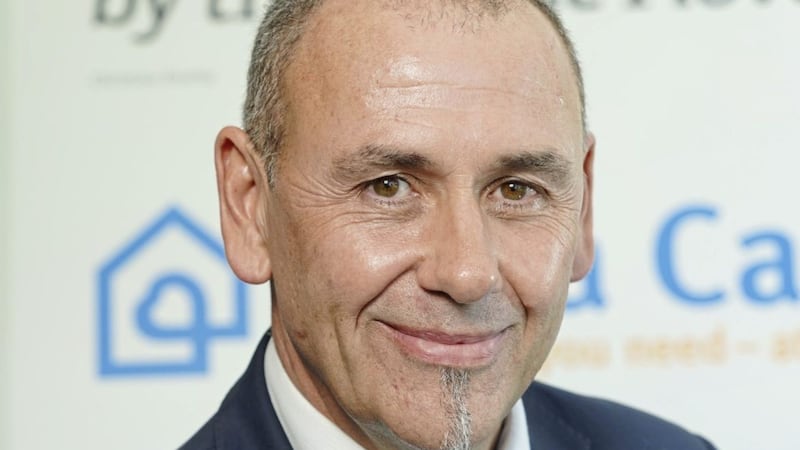IN the My Kind of Job spotlight this week is Brian Hutchinson.
What’s your job?
I am the chief executive officer for Extra Care, which is, to date, Northern Ireland’s oldest domiciliary care provider.
How did you get there?
I have worked in the charity sector across the UK and Ireland for over 30 years and have been at board level for nearly 20 of those years. I have held positions in Northern Ireland, England, Scotland and Wales and in that time I have been in a number of different management positions.
Do you have a typical working day?
The short answer is no, but that’s what makes the job so challenging and rewarding. Things change quickly, and adaptability is key. New situations present themselves on almost a daily basis and there are days when I can go from meeting with senior political representatives to doing the tea round in the office. It’s very stimulating and keeps me young.
What qualifications do you have?
I studied Law at Queen's University in Belfast once upon a time, then studied for a Masters at Saint Andrews University in Scotland.
What other skills do you need in your role?
The ability to listen well, plan with others and communicate clearly. I also mentioned adaptability earlier and I can’t stress enough how important that is. This job brings so many new challenges with it that preparing for the unexpected is something which goes with the territory.
What’s the best thing about your job?
Every day you are coming into contact with staff, the service users we support, colleagues from other organisations. Sharing in their story is the inspiration that keeps me going and is something which constantly keeps my motivation levels high.
And the worst?
Whatever your profession or your job title, a bad day is a bad day. We’re all human. Things can quickly pile on top of us and that’s when friends and family are at their most important. Remembering that each day passes as quickly as it came is helpful. Tomorrow is a new day with new opportunities to do better.
What do you think are the greatest challenges/pressures of the job?
For me, it’s hard not to mention the funding crisis in social care across the board. It’s real, it’s in front of us, and it’s affecting people’s lives. Working creatively with the people we support and with a strong and motivated team gives me great confidence that, as always, social are will come through this stronger. We manage to give the best to the people in our care despite these constraints and we will continue to do so for as long as we are able.
What did you want to be when you were at school?
I think like lots of little boys who grew up in east Belfast, I was in the shadow of those two big yellow cranes which shaped so much of how I saw the world. Over time however, I think social care became a more realistic choice. I have always had an innate drive to help people and I quickly came to the realisation that social care could facilitate that.
What advice would you give someone considering a career in your profession?
Be persistent. Listen well and never be afraid to ask why. Keep asking why, no matter how much you think you know.
What’s the most common question people ask when they find out what you do?
I think the first reaction I get from people is bafflement. That’s usually followed by “How did you end up doing this?” And when you explain what a day can look like, that bafflement tends to lessen over time. Sometimes I’ll even get a smile and once or twice people have even told me that it “sounds like fun”.
How do you like to relax outside work?
Ravenhall for the rugby and the Lyric for a night at the theatre tend to feature high on my list. Going to bookshops and spending time with my son are definitely up there too. We are lucky in Northern Ireland that there tends to be a lot happening and never far from your door.








